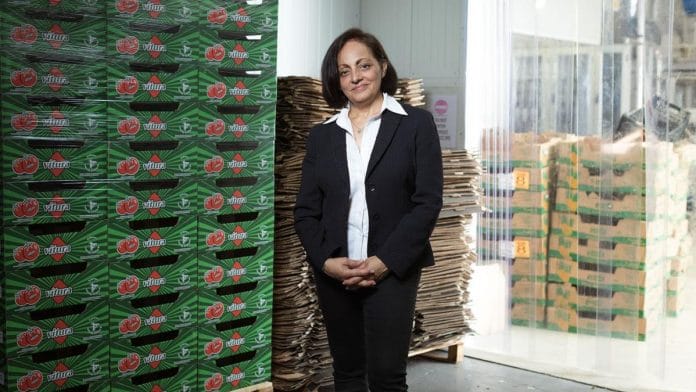London: In 2019, Nimisha Raja’s Brexit headache was a 24-tonne mountain of beetroot. This year, it’s a hunt for 40,000 lemons.
Raja, chief executive of snack producer Nim’s Fruit Crisps, was trying to stockpile to ensure she could fill orders in January without disruption. Instead, like other companies trying to do the same, her plans were completely upended. Delays because of delivery volumes were then compounded after a mutant strain of Covid-19 prompted France to shut down truck travel across the Channel.
The problems highlight the difficulties facing businesses as they try to prepare for Brexit with no idea whether a deal will be reached amid a global pandemic that’s strained supply chains. The ban is threatening fresh-food supplies and just-in-time manufacturing, and led to hundreds of trucks stuck on the motorway into Dover, Britain’s busiest ferry port.
“It’s been a nightmare, really,” said Raja, who was forced to cancel her delivery. “If it’s stuck at port for two days, do we still have the right to say I don’t want it because I know half of it’s going to be rotten?”
The snack company, based south east of London, has managed to stay open throughout the virus without furloughing any of its workers. But now Covid and Brexit are combining in a nightmare scenario.
‘Can’t go on like this’
As industry groups have warned of looming shortages on Monday, some companies have been looking at alternative delivery arrangements. Supermarket chain J Sainsbury Plc said it’s studying the use of planes for some fresh-vegetable shipments instead of truck ferries.
It’s not the first time a Brexit deadline has caused problems for Raja. Worries about disruption around the U.K.’s original March 2019 departure date caused her to stockpile beetroot, leaving the company scrambling to make them into crisps before they could rot.
After that experience, the business decided not to stockpile ahead of other deadlines. But with Brexit going down to the wire, Raja succumbed to warnings from suppliers to get ahead of the import issues anticipated in early January.
Suppliers have promised replacement lemons from Egypt but after that Raja needs three tonnes of cucumber if she’s to meet orders. She’s now considering whether she can avoid importing anything from the EU in the coming months.
“We can’t go on like this,” she said. “We’ve got so much work to do preparing for Brexit. It’s costing us a lot of money and a lot of time, and that’s the worst thing of all for a small business.” –Bloomberg
Also read: Brexit talks miss another deadline as wrangle over fishing waters, state subsidies drags on






